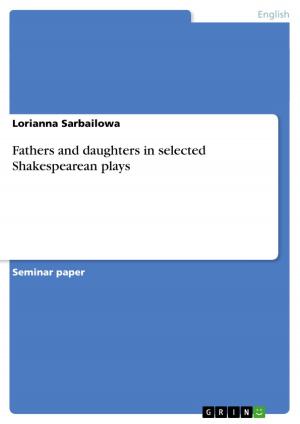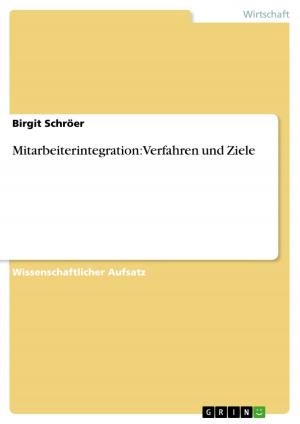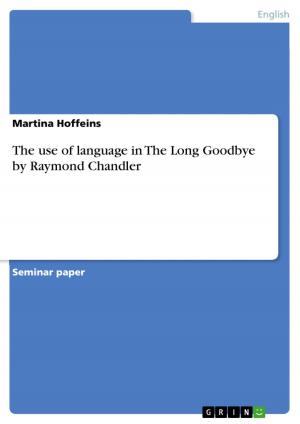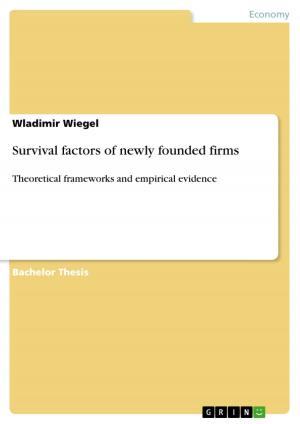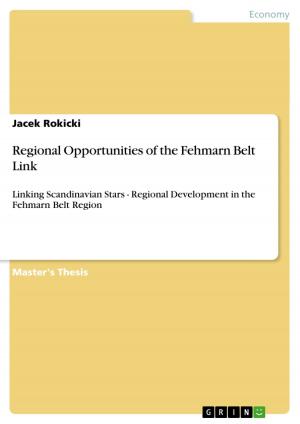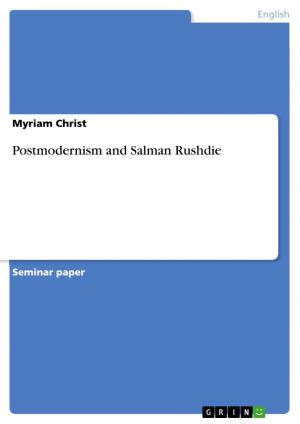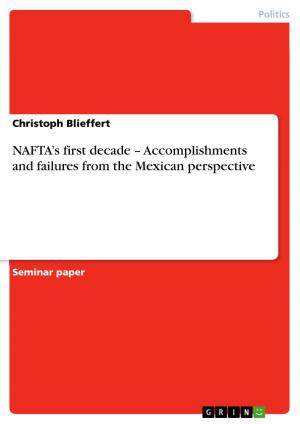| Author: | Kristin Simon | ISBN: | 9783638369374 |
| Publisher: | GRIN Publishing | Publication: | April 21, 2005 |
| Imprint: | GRIN Publishing | Language: | English |
| Author: | Kristin Simon |
| ISBN: | 9783638369374 |
| Publisher: | GRIN Publishing |
| Publication: | April 21, 2005 |
| Imprint: | GRIN Publishing |
| Language: | English |
Seminar paper from the year 2004 in the subject English Language and Literature Studies - Linguistics, grade: 1,3, Ernst Moritz Arndt University of Greifswald (Institut für Anglistik/Amerikanistik), course: Gender Linguistics, 9 entries in the bibliography, language: English, abstract: Same-sex peer groups are of vital importance for children's development. There they learn gender appropriate behaviour and language. In my term paper I want to explain the nature and function of peer groups and examine the language that develops in same-sex and mixed-sex peer groups. The paper will focus mainly on same-sex peer groups, because they are the basis for the differences in the development of girls and boys. Therefore I organized my term paper the following way: Before I introduce the general concept of a peer group, I want to point out the importance of children for the reproduction of the social order in a particular society. I will also focus the attention on the linguistic significance of peer groups. After that I will sum up the different patterns of behaviour and communication of girls and boys in same-sex and mixed-sex peer groups, which I found in several papers on this topic. Then I will introduce the 'Separate World Hypothesis', which should, according to my thesis, explain the turned up differences. Furthermore I will try to demonstrate difficulties of the hypothesis and give other hypotheses opposing it. Finally I will point out problems which might come up during the study of peer groups.
Seminar paper from the year 2004 in the subject English Language and Literature Studies - Linguistics, grade: 1,3, Ernst Moritz Arndt University of Greifswald (Institut für Anglistik/Amerikanistik), course: Gender Linguistics, 9 entries in the bibliography, language: English, abstract: Same-sex peer groups are of vital importance for children's development. There they learn gender appropriate behaviour and language. In my term paper I want to explain the nature and function of peer groups and examine the language that develops in same-sex and mixed-sex peer groups. The paper will focus mainly on same-sex peer groups, because they are the basis for the differences in the development of girls and boys. Therefore I organized my term paper the following way: Before I introduce the general concept of a peer group, I want to point out the importance of children for the reproduction of the social order in a particular society. I will also focus the attention on the linguistic significance of peer groups. After that I will sum up the different patterns of behaviour and communication of girls and boys in same-sex and mixed-sex peer groups, which I found in several papers on this topic. Then I will introduce the 'Separate World Hypothesis', which should, according to my thesis, explain the turned up differences. Furthermore I will try to demonstrate difficulties of the hypothesis and give other hypotheses opposing it. Finally I will point out problems which might come up during the study of peer groups.

